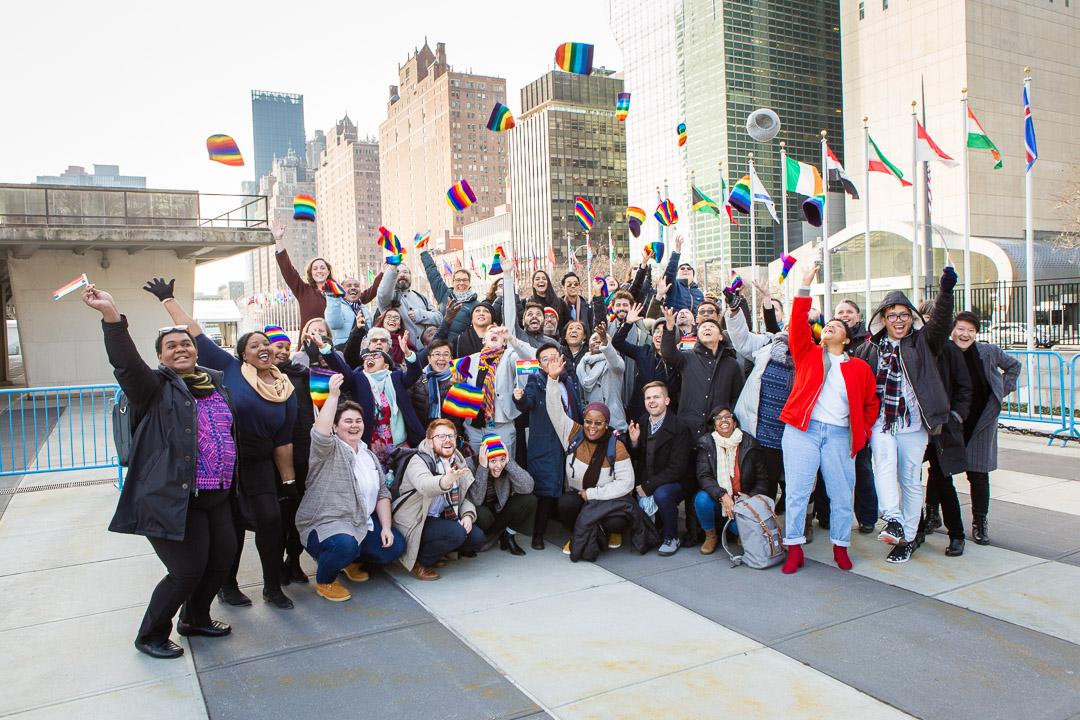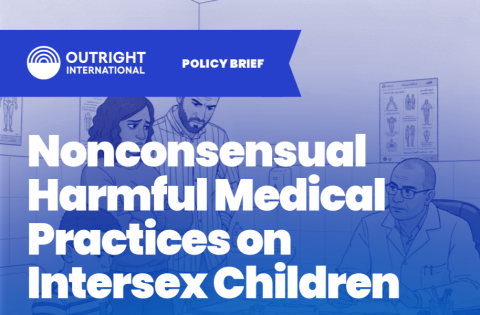
Report
Nonconsensual Harmful Medical Practices on Intersex Children
Nonconsensual harmful medical practices on intersex children, including intersex genital mutilation (IGM), violate a range of human rights. Ending these practices requires intersex-informed and rights-based policy responses.
Key Points from Outright International's Policy Brief on Nonconsensual Harmful Medical Practices on Intersex Children
- Intersex is a broad umbrella term describing nearly two percent of the population with innate physical variations of sex characteristics, such as genitals, reproductive organs, chromosomes, and/or hormones, that don’t align with typical notions of either a female or a male body. Intersex traits may be discovered in utero, at birth, or later in childhood/adolescence.
- Intersex people globally are subjected to various forms of discrimination and suffer human rights violations in all aspects of society, including in medical settings.
- Under international human rights law, governments must eradicate harmful medical practices such as non-consensual genital and other surgeries on intersex children (sometimes referred to as “intersex genital mutilation” or “IGM”).
- Laws prohibiting harmful medical practices on intersex children should be intersex-informed and conform to international principles of human rights law.

Explore News and Commentaries
We share news, cultural media and advocacy of partners, activists and experts through the lens of LGBTIQ people working on international human rights.
Read Our Insights